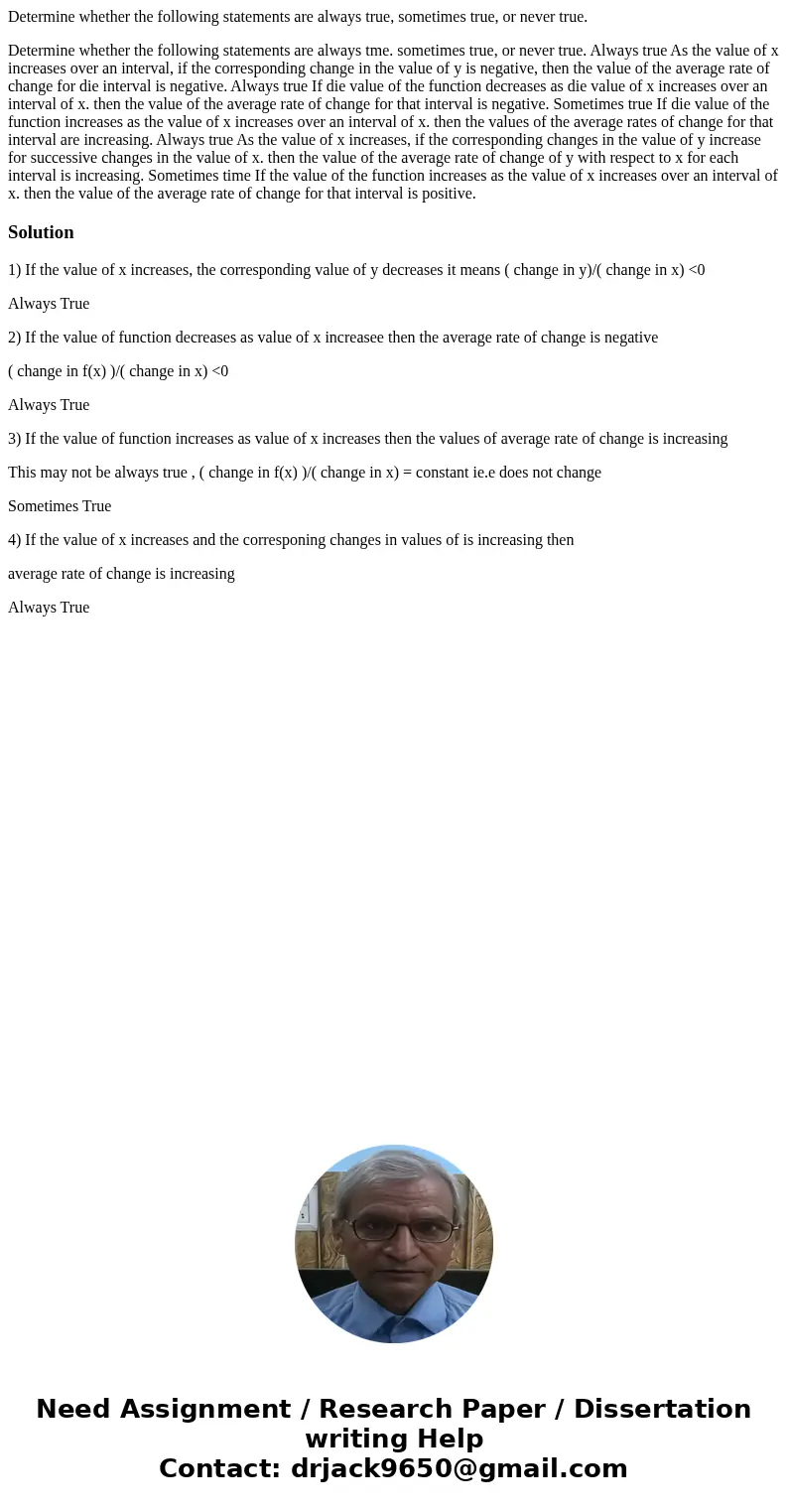Determine whether the following statements are always true s
Determine whether the following statements are always true, sometimes true, or never true.
Determine whether the following statements are always tme. sometimes true, or never true. Always true As the value of x increases over an interval, if the corresponding change in the value of y is negative, then the value of the average rate of change for die interval is negative. Always true If die value of the function decreases as die value of x increases over an interval of x. then the value of the average rate of change for that interval is negative. Sometimes true If die value of the function increases as the value of x increases over an interval of x. then the values of the average rates of change for that interval are increasing. Always true As the value of x increases, if the corresponding changes in the value of y increase for successive changes in the value of x. then the value of the average rate of change of y with respect to x for each interval is increasing. Sometimes time If the value of the function increases as the value of x increases over an interval of x. then the value of the average rate of change for that interval is positive.Solution
1) If the value of x increases, the corresponding value of y decreases it means ( change in y)/( change in x) <0
Always True
2) If the value of function decreases as value of x increasee then the average rate of change is negative
( change in f(x) )/( change in x) <0
Always True
3) If the value of function increases as value of x increases then the values of average rate of change is increasing
This may not be always true , ( change in f(x) )/( change in x) = constant ie.e does not change
Sometimes True
4) If the value of x increases and the corresponing changes in values of is increasing then
average rate of change is increasing
Always True

 Homework Sourse
Homework Sourse